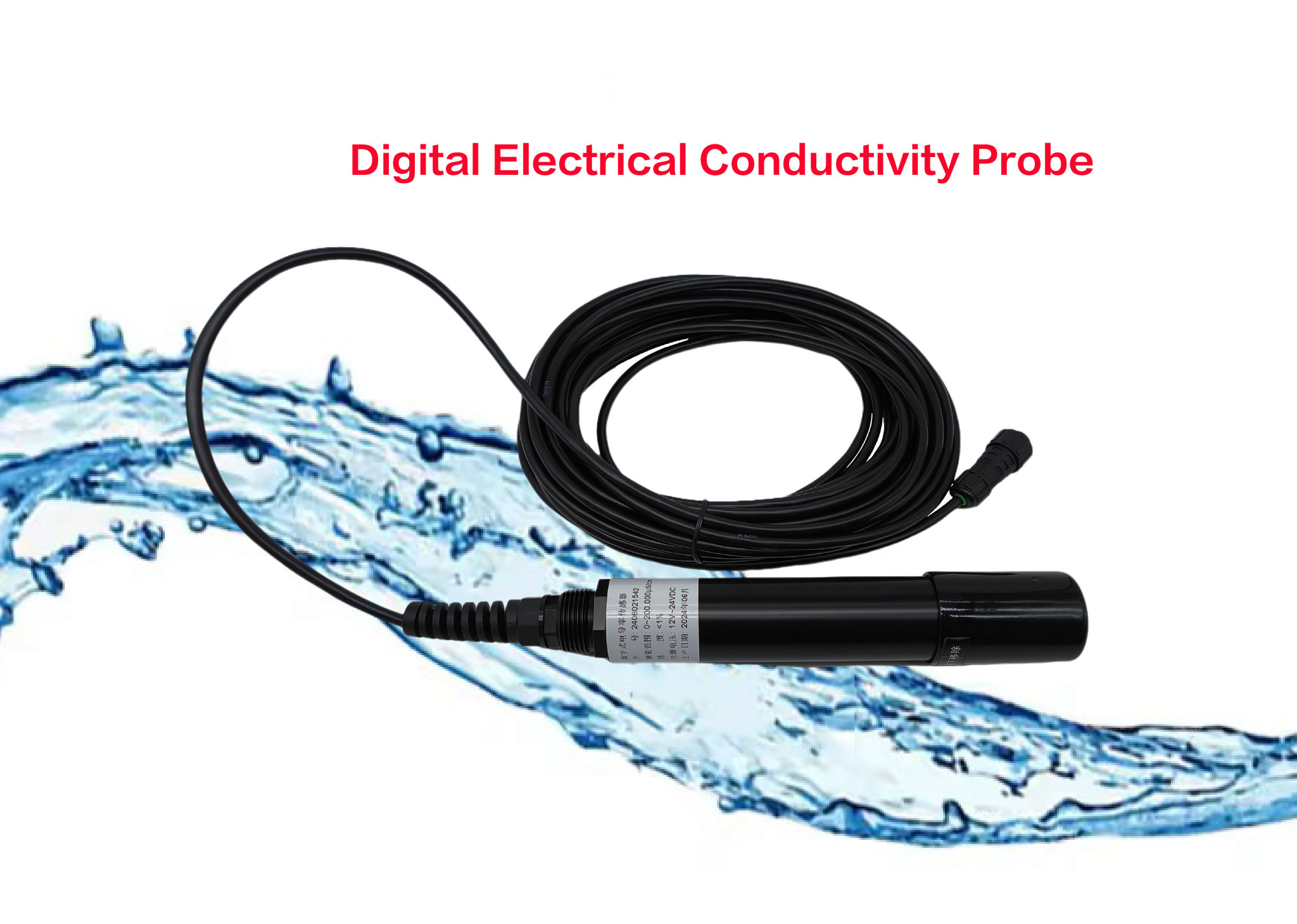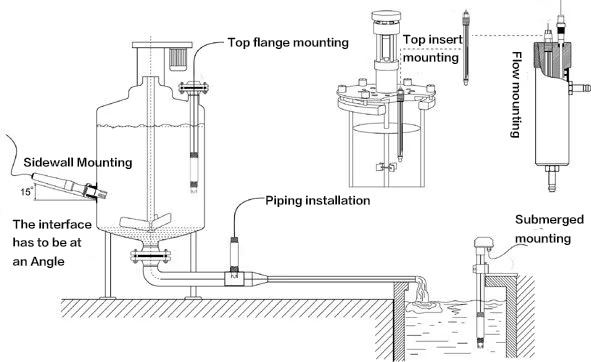BOY-SZ05-EC digital conductivity sensor
Product features:
1. Using POM corrosion resistant shell; NPT3/4 upper thread interface, easy to install;
2. Quadrupole measurement design to avoid ion cloud interference;
3. Measurement factors multi-curve establishment, can be measured at the same time: conductivity, temperature, salinity, TDS;
▋ Video Description
▋ Product Introduction
The BOY-SZ05-EC is a digital conductivity sensor. Corrosion resistant shell, IP68 protection grade; Industrial grade quadrupole electrode is selected, the electrode constant is stable; Automatic compensation of surface contact resistance; Flat measuring surface design, easy to clean; Built-in temperature sensor and compensation algorithm, suitable for all kinds of harsh working environment.
▋ Product Parameter
| Parameter | Index |
| Measuring medium | Conductivity sensor |
| Working principle | Quadrupole electrode method |
| Measuring range | 0~200,000 μS/cm |
| Measurement accuracy | < 1% |
| Resolution | 0.01μS/cm |
| Response time | < 15s |
| Communication output | RS485 Modbus RTU |
| Housing material | POM |
| Power dissipation | <1% |
| Temperature compensation | 0~50 ℃ (no ice),0~2 bar |
| Power supply voltage | 12~24VDC |
| Protection level | IP68 |
| Product size | D34mm, L205mm, cable 3m (customizable) |
▋ Product Size
▋ Installation Method
1. Sensor use Sensor measurement needs to have a certain space, the bottom and around the need to retain more than 2cm spacing; It is recommended to install the sensor horizontally or to measure against the quasi-current direction.
2. Sensor cleaning
You can use warm water containing detergent or alcohol to clean the organic component dirt on the electrode; Mechanical cleaning will destroy the matte layer on the electrode surface.
3. Calibration of sensor
In order to ensure the accuracy of conductivity measurement, it is necessary to periodically calibrate the electrode constant using standard liquid.
4. Equipment preservation
Before storage, clean the sensor and leave no residual water. The sensor should be stored in a dry environment.
▋ Application
▋ FAQ
1. Abnormal sensor reading:
It may be caused by sensor damage, sensor contamination and sensor deviation. You need to replace the faulty sensor or clean the debris attached to the sensor, or re-calibrate the sensor or replace the calibration fluid.
2. Communication failure:
Communication failures are mostly caused by data transmission problems when monitoring equipment communicates with host computers or cloud platforms. Generally, you need to check the connection line to check whether the communication interface and communication parameters are correct, and then reset the system.
3. Power supply failure:
Power supply failure refers to the insufficient or unstable power supply of the device, resulting in the normal operation of the device. To ensure the stability of the power supply, add a power filter to check whether the power supply and the circuit are normal.
4. Improper maintenance:
Before using the equipment, it is necessary to carry out daily equipment inspection, timely cleaning of the equipment, replacement of consumables and wearing parts to ensure the normal operation of the equipment. At the same time, regular maintenance of the equipment should be done to maintain the stability of the equipment performance.

















